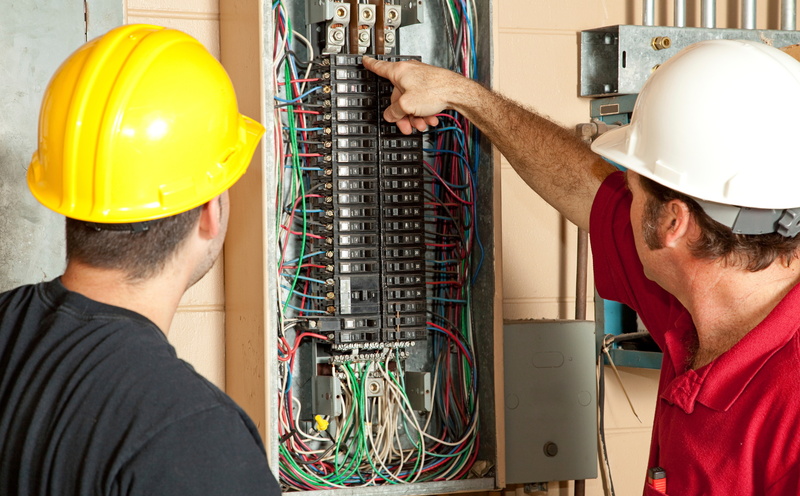
An electrical panel, a fuse box … what’s the difference? To many non-electricians, they may sound like the same thing, and people often talk about them as if they were interchangeable. They aren’t, however, and knowing the difference between them is important if you have an older house with the outdated version.
How the Two Are the Same
Before we get into the differences between the electrical panel and the fuse box, we’ll look at what’s the same between them—which is the job they do in a residential electrical system.
The electricity entering your house from the grid must divide up into different circuits to be directed around the building. An electrical panel or fuse box is the central hub of the house’s electrical system where the incoming voltage is separated into the various circuits. The panel or box is designed to cut off electricity to one of the circuits in case of overload on the circuit indicating an electric short.
What Makes Them Different
Where an electrical panel and a fuse box are different is how they control voltage flow. When you open an electrical panel (also known as a circuit breaker panel or a breaker box), you’ll see rows of switches. These are breakers, each for an individual circuit. In case of a short, a breaker will trip and cut off electricity to its circuit. To reset the circuit only requires resetting the breaker. (We recommend you label each breaker for the part of the house it controls. Use paper labels and put them beside the switches. This makes it easier to troubleshoot problems if you have multiple breaker trips.)
When you open a fuse box, you’ll see what looks like a set of colored knobs rather than switches. These are the fuses, which contain a filament that melts when it experiences voltage overload, and then cuts off electrical power to the circuit. When this happens, the fuse must be discarded and a new one put in.
Should You Upgrade a Fuse Box to an Electrical Panel?
In almost all cases, the answer is yes. On the simplest level, an electrical panel is more convenient. When a breaker trips in your house, you only need to reset it, not replace it. And nobody wants to be fumbling around in the dark attempting to replace fuses!
But more important is that electrical panels are better suited to modern electrical loads in homes. They can handle higher amperage, and with the higher number of electrical devices in today’s homes, this is vital. Electrical panels are also compatible with GFCI outlets, which we strongly recommend all homes have installed.
Fuse boxes can handle higher electrical loads if larger fuses are put in place. The trouble with this is it’s a fire hazard! There aren’t any serious upsides to keeping a fuse box, and too many downsides. We advise having a full upgrade to an electrical panel.
If you need work for your home’s electrical system in Buffalo, NY, reach out to us. We’re available 24 hours a day and you’ll always reach a real person, not a recording.
Scherer Electric is Western New York’s Favorite Electrician. Contact us 24/7 for whatever electrical assistance you need.





